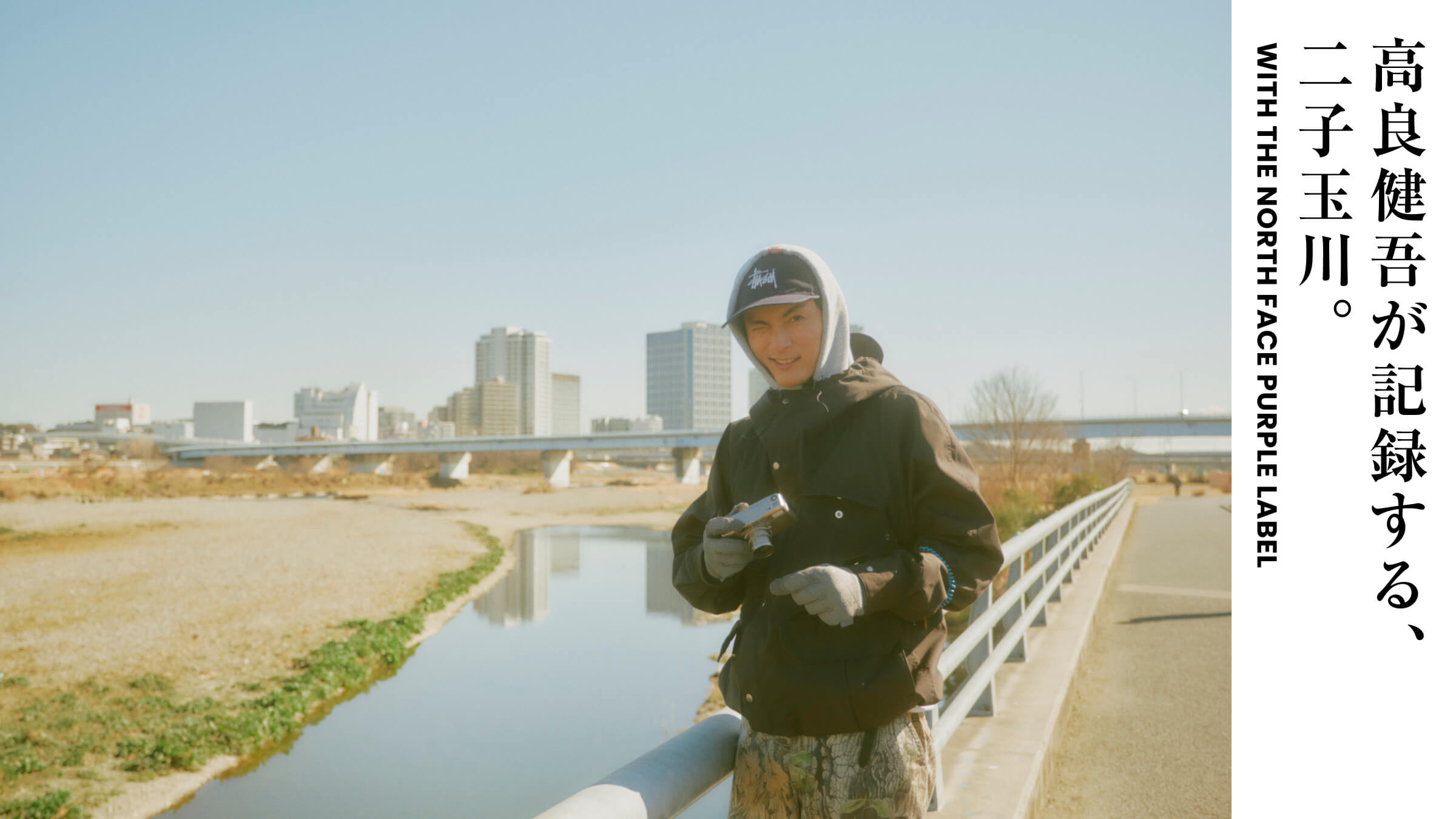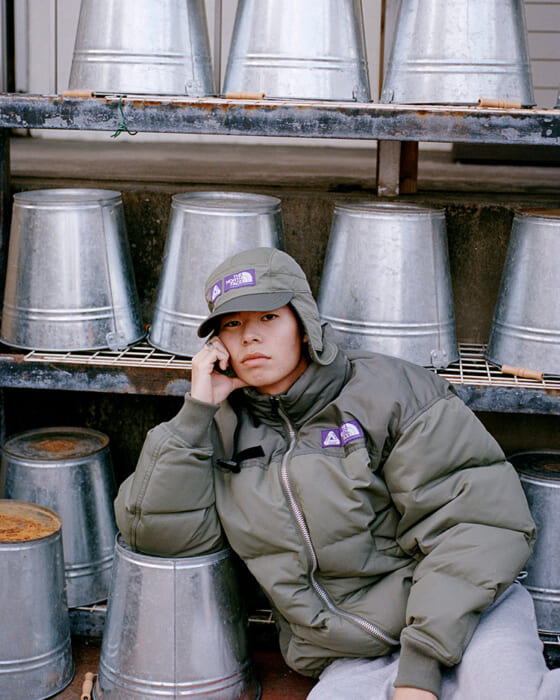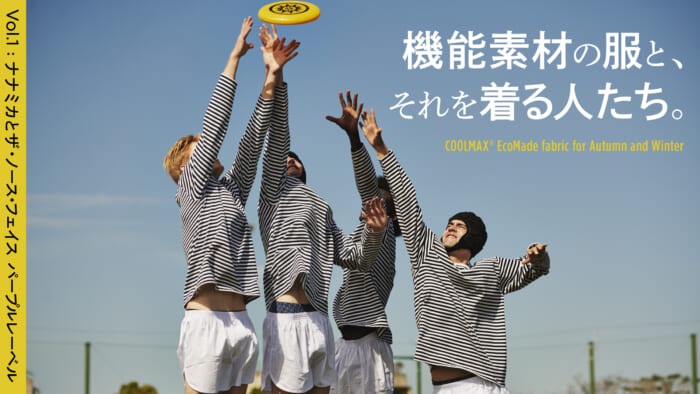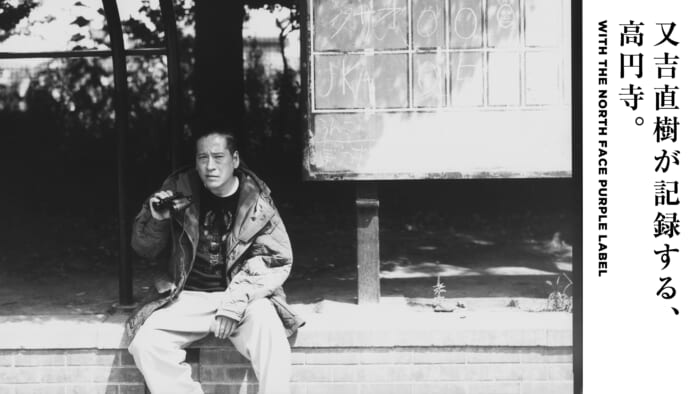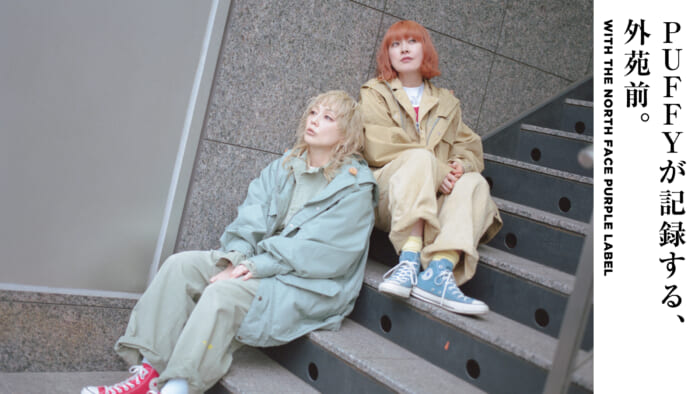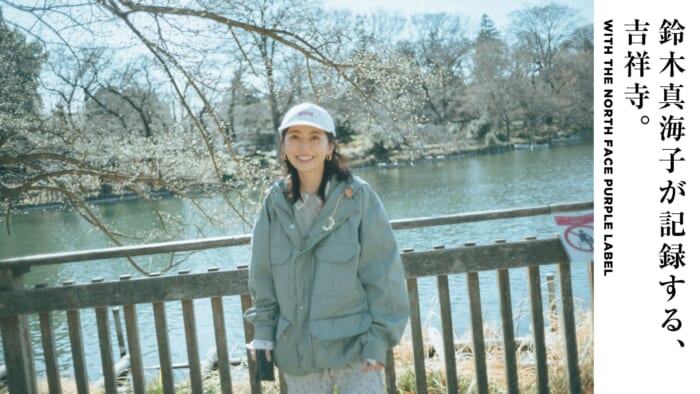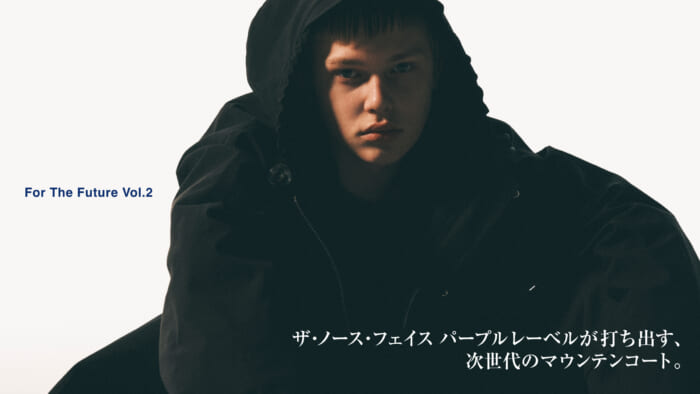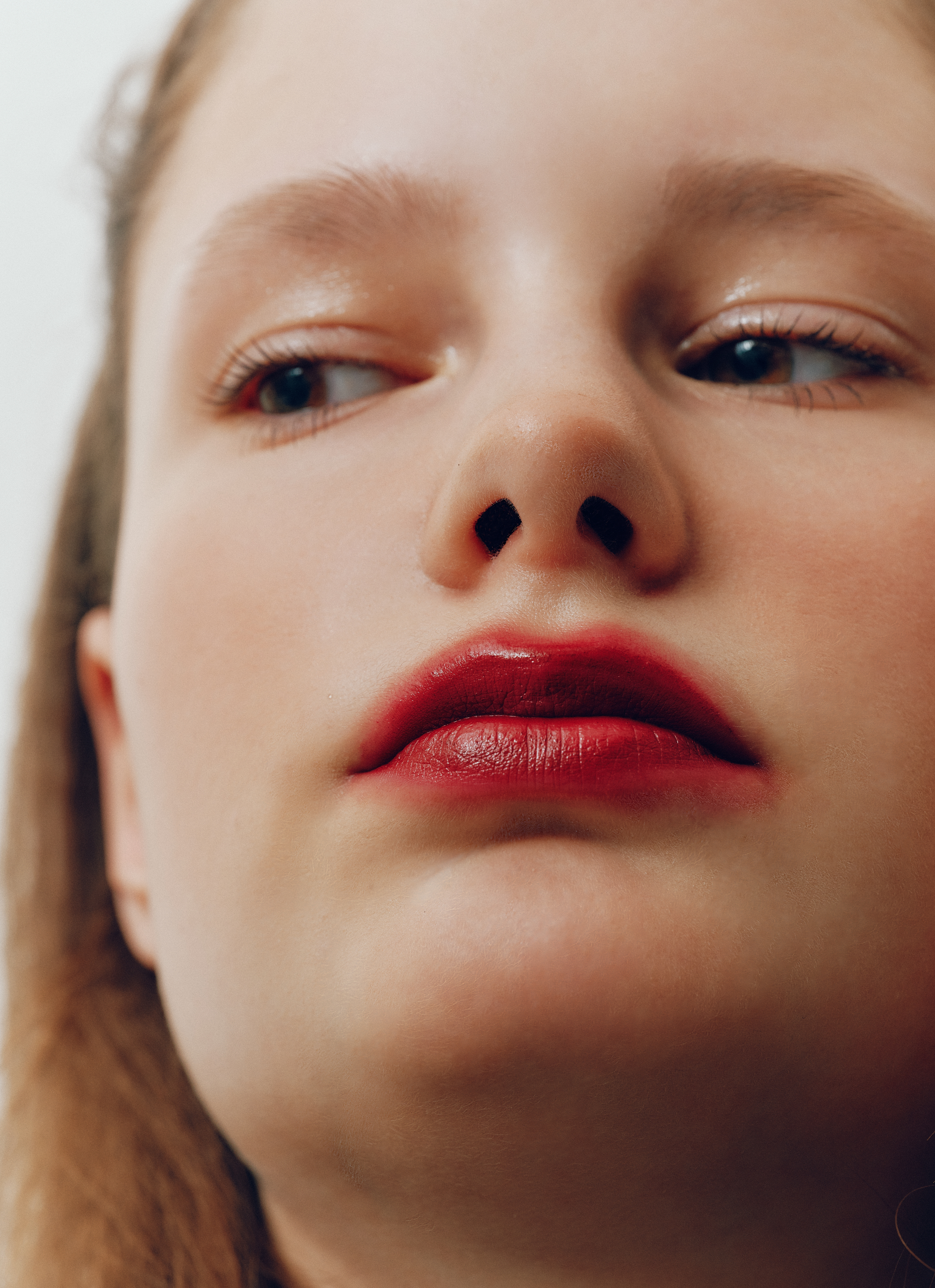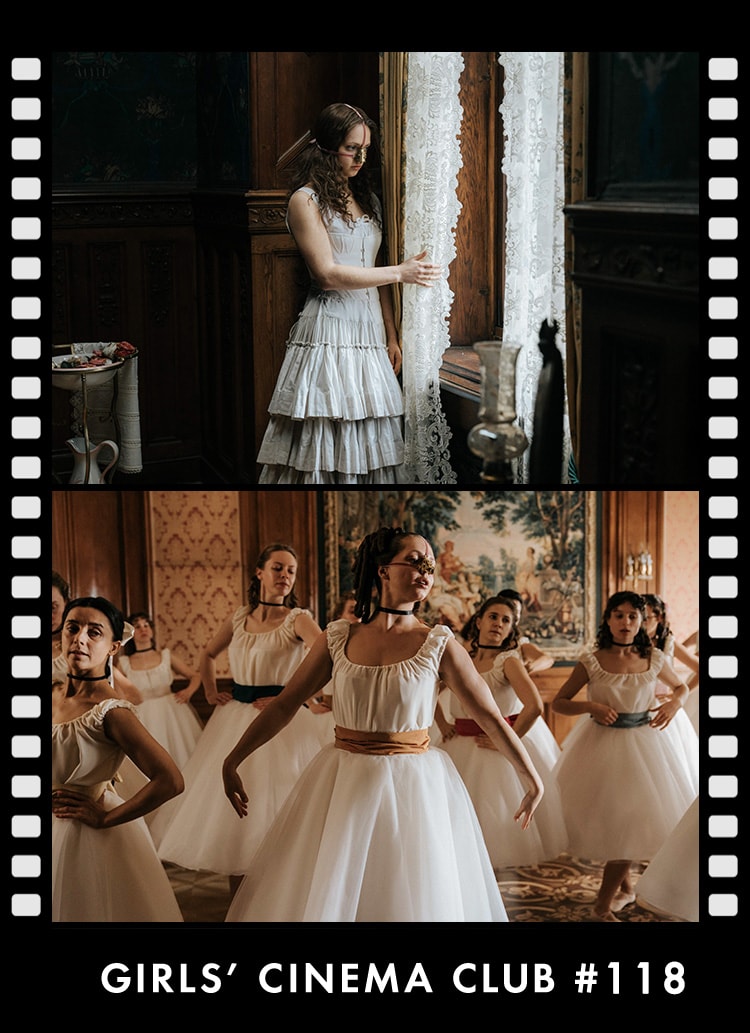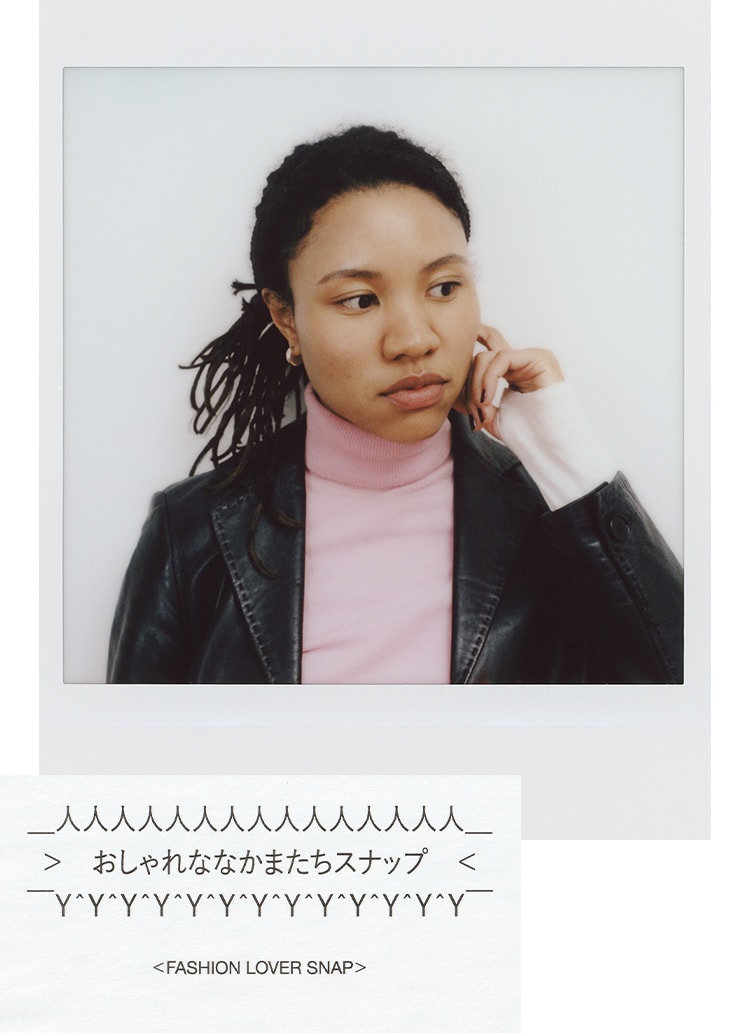PROFILE
Born in Kumamoto Prefecture in 1987, he began his acting career in 2005 in the TV drama "Gokusen" and made his film debut in 2006 with "Hariyo no Natsu" (The Summer of Hariyo). 2013 saw him win the 56th Blue Ribbon Award for Best Actor for the film "Yokomichi Yonosuke" in which he starred. He has since appeared in a variety of films and dramas, and in 2024 he celebrated the 20th anniversary of his performing career.

The North Face Purple Label 65/35 bay head cloth mountain parka, ¥49,500 (Nanamica Mountain)Good Enough used pullover parka ¥22,000, Double Taps x Leacon used cargo pants ¥35,200 (both from Blue room), other personal effects of stylist



















Even in Tokyo, there is nature if you want to find it.
The city has the impression of buildings and concrete, but if you look carefully, you will notice that nature is actually everywhere, such as flowers and trees blooming on roadsides, parks, and the wind blowing off buildings. Such "nature in the city" has something in common with The North Face Purple Label's outdoor wear that blends in with the city.
Among these, the mountain parka is a standard item that has been a staple since the brand's birth. The fabric is a 65/35 bay head cloth, a blend of recycled polyester and organic cotton spun at a ratio of 65:35 and densely woven. The fabric is durable and functional, yet feels like cotton to the touch. And with four pockets, you don't need a bag when you go for a walk.
Kengo Kora came to Futakotamagawa with the clothes that are the face of the brand. In line with The North Face Purple Label's key concept of "documenting nature in the city," we asked Mr. Kora to record the scenery of Futakotamagawa and the nature that exists there in his photographs.
How was it?
Kora: I usually ride bicycles purely for the love of it, but it was like that turned into a job, and the shoot was like a reward. Riding the bike with all the staff, I thought this was a group ride (laughs).
I hear that you usually come to this riverbed by bicycle.
Kora: Futakotama is close to both nature and the river, and the buildings are low, so the scenery is open, and it is a place to come when you want a change of scenery. It is also interesting that there are a variety of paths, some paved, some jagged that could be attacked.
How far do you usually run?
Kora: In my mind, there are two routes: the Chofu side and the Haneda side. No matter which way I go, the round trip is about 30 to 40 km. When I want to see the sunset, I run on the Chofu side as the sun is setting. That is usually when I want to feel emo (laughs). In the morning or during the day, I ride on the Haneda side. If I go to Haneda, I can see the ocean, and the scenery is completely different.
Compared to the city center, there is a lot of nature.
Kora: Even in Tokyo, I think there is a surprising amount of nature to be found if one is willing to look for it. For example, parks. But Futakotama has a long riverbed, so there is always greenery, so when I want to get away from the city and concrete, I ride my bicycle around Futakotama.
Riding a bike, in your mind, is more about relaxation and relaxation, isn't it?
Kora: In my mind, I call it meditating. The reason is that riding a bicycle is very simple. There are no complicated movements, you just pedal. There are people and cars running around, so you don't have to think about anything else and just concentrate on riding. In that sense, it is a meditative ride.
I understand that you have been riding BMX since you were in high school.
Kora: I thought it was fashionable to ride a BMX to school, so I started riding from the first year of high school. From that time on, bicycles were completely fashionable in my mind. It was not a competition or sport. That's why I couldn't do any tricks (laughs).
I have the image of you wearing street brands, but did your choice of BMX mean that your fashion preferences were also in that vein from the time you chose BMX?
Kora: That's right. I started my fashion career at "Stussy" and "Extra Large. After that, I saw the magazine "CHOKiCHOKi" and tried some unusual outfits, and there was a period after I moved to Tokyo when I wore high-brand clothes, but I have always loved street clothes.
Is that influenced by something?
Kora: Rather, it's because it suits me. I like the silhouette, and it fits my way of playing best. Also, it's easy to wear. I don't worry about wrinkles and other details in street clothes, and I think it's cooler when they are worn out and dirty.
It seems to have something in common with the mountain parka you wore this time.
Kora: Moompas are the best. Even now, I have at least two pieces of clothing from The North Face. Everyone who likes street fashion goes through this brand at least once. I think it would be cool to wear "The North Face" clothes for a long time and feel the history of the person wearing them.
So, what did you think of The North Face Purple Label's mountain parka?
Kora: I like the rugged look. I don't think it compares to the North Face, but I feel a little different when I wear it. The purple mountain parka has a universal and classic design, but there is something elegant about it.
Today's outfit was a combination of a mountain parka and a street brand.
Kora: My usual style is also like this, especially the pants from "Double Taps" and "Reacon," which were great and nostalgic. The Urahara area is one of the places that made me fall in love with fashion, so I still can't get enough of these items.
During the shoot, you documented the cityscape and nature in the form of photographs. Do you usually take photographs?
Kora: I don't take pictures at all, even with my cell phone. I hear people around me say, "I like this picture," but I don't really know if it's good or bad....
I see. I have an image of Mr. Takara from the movie "Yokomichi Yonosuke," so I was wondering if he had a camera.
Kora: There is a scene at the end of "Yokomichi Yonosuke" in which a baby is photographed. Normally, you focus on the place you want to shoot and press the shutter. The film ends when Yonosuke starts holding the camera, so the director, Mr. Okita, thought I was trying to do that and praised me for it. But I had no idea what he was talking about (laughs). That's how much I don't know about cameras.
Thank you very much for the wonderful behind-the-scenes story. 2024 marks the 20th year of your acting career, and you took a six-month break from acting.
Kora: I was riding my bicycle all the time (laughs). I really wasn't thinking about work, and I only watched enough movies and books to fit on both hands. It was the best vacation I ever had.
Have you noticed any changes since you have been away from acting?
Kora: For 20 years, I have been an actor in my own way, and I have always been conscious of how people see me and what they think of me, no matter what I do. So, when someone asked me to do something, I sometimes resisted, saying, "That doesn't sound like me. That kind of obsession and ego is necessary, but before I took a break, it was getting louder and louder, and it was getting out of control.
I just took a break, got married, had a baby, and started working again. I didn't fight against anything, I just went with the natural flow and thought, "That's good enough. I just rode the wave that came my way, and I didn't care what I did or what other people thought of me. That doesn't mean I'm going to lose my obsession, and it was during this six-month period that I realized that. So I feel that it will change the way I approach my work from now on.


